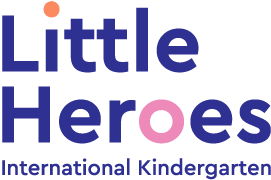Valuing Diversity and Preventing Bullying in Early Years
At Little Heroes, we understand that the early years of a child's life are crucial for their development and well-being. We are committed to creating an inclusive and welcoming environment where every child feels valued and respected. Our focus on diversity and bullying prevention is embedded in our daily practices and curriculum, ensuring that each child learns the importance of acceptance, kindness, and mutual respect from a young age.
Diversity enriches our community and enhances the learning experience for all children. At Little Heroes, we celebrate the unique backgrounds, cultures, and abilities of our students. Research shows that exposure to diverse environments helps children develop empathy and social skills (Palmer, 2006). In our classrooms, we incorporate multicultural books, toys, and activities that reflect the diverse world we live in. Children learn about different cultures through stories, songs, and celebrations, fostering an appreciation for diversity from an early age.
“We aim to build a foundation of respect and kindness that will benefit our children throughout their lives.”
Creating an inclusive environment where every child feels they belong is at the heart of our mission. According to a study by Derman-Sparks & Edwards (2010), inclusivity in early childhood settings promotes positive social interactions and reduces prejudiced attitudes. Our teachers receive ongoing training on inclusive practices and are skilled at recognizing and addressing the individual needs of each child. We strive to ensure that all children, regardless of their background or abilities, have equal opportunities to participate and thrive in our classroom.
Bullying prevention is a key component of our approach to creating a safe and supportive environment for all children. Research indicates that early intervention is critical in preventing bullying behavior and promoting positive peer relationships (Olweus, 1993). At Little Heroes, we teach children about empathy, kindness, and conflict resolution through structured activities and everyday interactions. Our teachers model respectful behavior and provide guidance on how to handle disagreements constructively. By fostering a culture of respect and understanding, we aim to prevent bullying before it starts.
Empowering children to stand up against bullying and support their peers is an essential part of our strategy. We encourage children to speak up if they see or experience bullying and provide them with the tools to do so effectively. Studies have shown that children who feel empowered to intervene in bullying situations are less likely to become victims or perpetrators of bullying (Salmivalli, 2010). At Little Heroes, we create a supportive network where children feel confident to express their feelings and seek help when needed. Our goal is to nurture compassionate and resilient individuals who contribute positively to their communities.
At Little Heroes, valuing diversity and preventing bullying are integral to our philosophy. We believe that by teaching these values from an early age, we can make a lasting impact on our students and the broader community.
References:
Derman-Sparks, L., & Edwards, J. O. (2010). Anti-Bias Education for Young Children and Ourselves. Washington, DC: NAEYC.
Olweus, D. (1993). Bullying at School: What We Know and What We Can Do. Malden, MA: Blackwell Publishing.
Palmer, P. J. (2006). The Courage to Teach: Exploring the Inner Landscape of a Teacher’s Life. San Francisco, CA: Jossey-Bass.
Salmivalli, C. (2010). Bullying and the Peer Group: A Review. Aggression and Violent Behavior, 15(2), 112-120.


